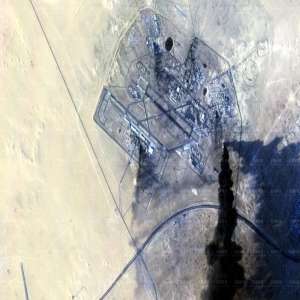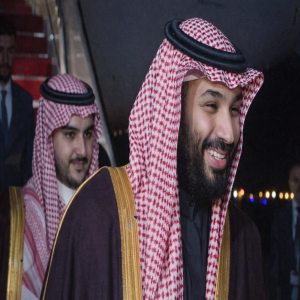"Arrests return to Mukalla for the first time since 2015."
Rashad Al-Alemi arrives in Mukalla for the first time. Saudi Arabia pushes for his exclusivity in the "Presidential Leadership Council"
Yemeni and southern political sources believed that Riyadh is seeking to grant Al-Alemi "absolute" powers, away from members of the Presidential Council, whose founding clauses stipulate the importance of consensus on decision-making.

Rashad Al-Alemi arrives in Mukalla for the first time
Arrived in the city of Mukalla, the center of Hadramawt Governorate, "Saturday", the Chairman of the Interim Leadership Council, "Rashad Al-Alemi", Coming from Saudi Arabia on a Saudi air force plane accompanied by Yemeni and Saudi officials, angry southern activists in the city of Mukalla, the capital of Hadramawt province, tore pictures of the interim head of the presidential leadership council.
Video recordings documented by activists showed tearing up pictures of Al-Elaimy, while southern activists launched an electronic demonstration rejecting the Saudi-backed Al-Alimi visit to Mukalla, in light of new developments and developments, all of which are aimed at confronting the Southern Transitional Council, the regionally recognized political authority of the Southern Transitional Council.
Al-Alemi's visit, which was arranged by Riyadh, came in the absence of Major General Faraj Al-Bahsani, a prominent man who had a role in liberating the coast of Hadramawt from the terrorist organization Al-Qaeda, but Al-Alimi was not accompanied by any of the members of the Presidential Leadership Council, but the last prime minister of the southern state, Haider Al-Attas, was present for the first time after a forced absence of more than three decades.
Al-Attas resides in Saudi Arabia, and has appeared during the past two years in a television interview to talk about the history of the conflict in the south, which explains that Al-Attas's visit comes in the context of Saudi efforts to extend its influence on the coast of Hadramawt, which was liberated from the terrorist organization Al-Qaeda in 2016.
Although Riyadh is leading a coalition to retake Sanaa and restore Yemeni legitimacy there, it has struck an agreement with Iran that prompted it to reactivate old tools it possesses in Hadramawt province.
The Yemeni Brotherhood, which has alliances with Riyadh, revisited the issue of the secession of Hadramawt, which was raised by the so-called League, a group of the Brotherhood that adopted other projects contrary to those of the Southern Movement.
Saudi Arabia maintained a close relationship with the regime of President Ali Abdullah Saleh, but after his ouster from power by a Gulf initiative designed by Riyadh, it went towards other projects that would enable it to achieve its desire to extend the oil pipeline to the Arabian Sea through lands belonging to the governorates of Hadramawt and Al-Mahra.
Riyadh has begun about two decades ago to grant southern tribes Saudi citizenship in preparation for biting part of the southern territory in order to facilitate the extension of the pipeline, which Ali Abdullah Saleh had agreed in principle to extend the pipeline, but Riyadh stipulated that it be granted an area of ten kilometers (width), along the pipeline, which extends from Saudi territory to the Arabian Sea.
Yemeni and southern political sources believed that Riyadh was seeking to grant al-Elaimy "absolute" powers, away from members of the Presidential Council, whose founding clauses stipulate the importance of consensus on decision-making.
The sources confirmed that Riyadh granted Al-Alimi the authority to issue a decision to "establish the National Shield Forces" with Saudi funding, without the knowledge of the rest of the members of the Council who were surprised by Al-Alimi issuing the decision to establish those forces, through which Saudi Arabia aimed to find military arms for them in the liberated southern regions.
The sources said that Saudi Arabia gave Al-Alimi a large budget to establish these forces and give their members "monthly salaries ranging between (380-500) US dollars per soldier, and took another step, represented in stopping the salaries of the Security Belt Forces affiliated with the Southern Transitional Council, which provided the opportunity for the defection of some soldiers, in search of "uninterrupted monthly salaries."
Months ago, Saudi Arabia suspended the salaries of southern forces fighting in Abyan and Shabwa against al-Qaeda and facing the Houthis on many frontlines.
On Saturday night, a security force stormed the house of the young Saeed Al-Tamimi in the Al-Sharj area of Mukalla, and snatched it from the middle of his family, in a scene reminiscent of the political and Central Security storming the homes of activists during the peaceful movement.
According to eyewitnesses and southern activists, Tamimi is accused by the security force storming his house of participating in a peaceful protest on Saturday afternoon against .the visit of the head of the presidential leadership council, Rashad al-Elaimy.



